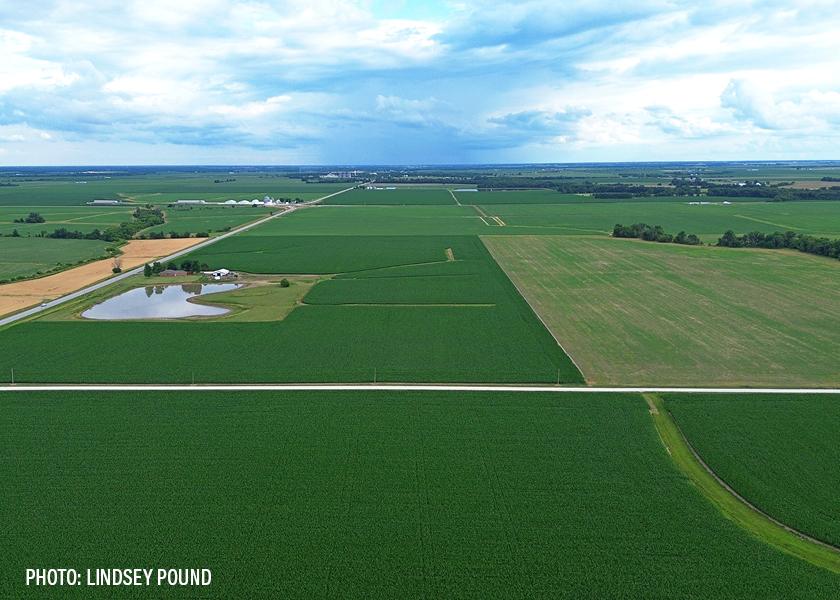Inflation and Recession Pressures: Is Farmland a Good Investment Right Now?

The Federal Reserve is hosting its Economy Policy Symposium this week, which has all eyes on Jackson Hole Wyoming for further details on inflation, interest rates and if a recession is looming. But would a recession effect your operation the way you think?
According to Bruce Sherrick, professor at the University of Illinois, you might not need to worry about what inflation is doing to your farmland values.
“Farmland returns are very highly correlated with inflation,” Sherrick says. “Most importantly, it has a positive correlation with inflation.”
Sherrick says this correlation is derived from the size and debt of the industry.
“Put the entire holdings of the country on one balance sheet and it’s now four trillion plus and only 13% leveraged, so 13% debt underneath it,” he says. “An interest rate change doesn’t have as big of a proportional impact as if you were talking about companies traded on the stock exchange, where the average leverage turns out to be around two-thirds.”
While the percentage of debt is low in comparison, he also highlights it’s mostly long-term, fixed-rate debt. Increasing interest rates won’t have as large of an impact on that, but it will decrease transactions.
Outside of inflation, there may be other reasons farmland values remain elevated.
According to the Federal Reserve Bank of Kansas City, a steady supply of land sales and strong demand from farmers has likely supported broad resiliency of real estate values so far in 2023.
Is It a Good Time to Invest in Farmland?
The Kansas City Fed also reported that growth in farmland values has eased from recent years but remains steady. So, despite higher interest rates, farmland remains a wise investment opportunity.
“People sometimes refer to farmland as an investment in gold, plus a coupon,” Sherrick says. “You get a fairly low annual cash flow, fairly high long-term rates of return and tax advantages to the asset classes.”
He outlines how the type of farmland to invest in remains up to the buyer’s background and risk tolerance.
Annual production crops – such as corn, soy and wheat – offer higher stability due to tenants or crop insurance to help manage risk. However, permanent crops – such as tree nuts, wine grapes or citrus – would be expected to have higher total return over time but higher volatility.
“If I were picking both from a financial and an emotional perspective, the next place I could put a dollar, I still would favor farmland pretty highly,” said Sherrick.
As for an outlook into 2024, Sherrick says to expect moderate changes.
“I won't be surprised if in the next year we have a softening of land values,” Sherrick says. “It won’t surprise me, but I’m not expecting a crash and I don’t see it as being driven entirely by interest rates.”
Hear more on The Top Producer podcast, hosted by Paul Neiffer:







